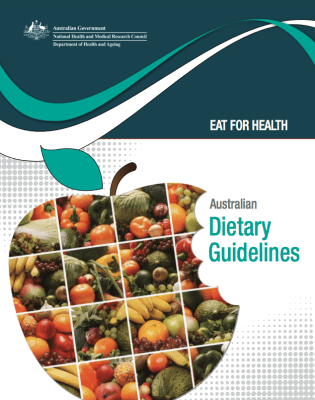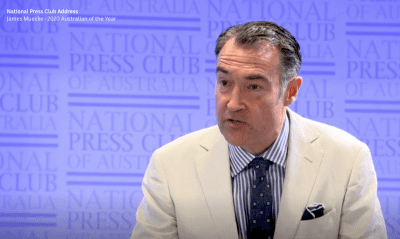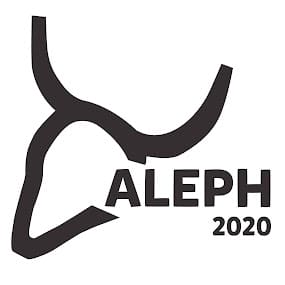The Federal body responsible for setting official dietary guidelines in Australia toyed with incorporating the impact of some foods on environmental sustainability over a decade ago, before reversing the move following a widespread industry backlash.
 The same body has also more recently come in for criticism from leading opthamologist and 2020 Australian of the Year Dr James Muecke for allowing its processes to become “heavily conflicted” by the ultra-processed foods industry to sway outcomes away from the health benefits of red meat and towards the health benefits of grain-based foods.
The same body has also more recently come in for criticism from leading opthamologist and 2020 Australian of the Year Dr James Muecke for allowing its processes to become “heavily conflicted” by the ultra-processed foods industry to sway outcomes away from the health benefits of red meat and towards the health benefits of grain-based foods.
The National Health and Medical Research Council is an independent statutory agency within the Department of Health and Aged Care, and is responsible for developing the Australian Dietary Guidelines (ADGs).
According to the Department, the guidelines are intended to provide evidence-based recommendations on the types and amounts of foods Australians should eat to meet nutritional requirements.
The current set of guidelines was released in 2013, and the council is now in the process of redrafting a new set of guidelines, initially set for release in 2024 but now scheduled for 2026.
“Over-reaching”
Revelations this week that the NHMRC is planning to incorporate messaging on sustainability within its revised dietary guidelines have triggered red meat industry concerns the body is over-reaching, and drifting into areas where it has limited expertise or understanding.
 Industry groups have argued the move goes far beyond NHMRC’s remit and has the potential to create flawed, misleading and confusing dietary recommendations for consumers and risks undermining public confidence in health advice.
Industry groups have argued the move goes far beyond NHMRC’s remit and has the potential to create flawed, misleading and confusing dietary recommendations for consumers and risks undermining public confidence in health advice.
It is not the first time the NHMRC has ventured down this path.
In May 2011 Beef Central reported on the release of a draft review by the council prior to releasing the official 2013 ADGs.
That draft review contained suggestions Australians should limit consumption of red meat because livestock production production had “a large environmental impact through combined methane, carbon dioxide and nitrous oxide emissions.”
The recommendation sparked a backlash from agricultural industry groups and was removed from a draft released several months later.
However when the formal 2013 guidelines did finally appear, the 226 page document contained a handful of messages sprinkled throughout suggesting consumers consider the environmental impact of their food choices.
ADGs under fire for failing to curb obesity crisis
In 2021 the NHMRC came in for stinging criticism over the direction and content of its ADGs, when ophthalmologist and 2020 Australian of the year publicly Dr James Muecke publicly took aim at the council during a National Press Club address.
Dr Muecke said the ADG document sat “quietly and unceremoniously on the Federal Department of Health website” but was “very powerful”.
He said the document determines what is eaten in schools, hospitals, prisons, defence forces, in childcare and aged care facilities, and helps inform armies of health care professionals, health educators, Government policy makers and the food industry.
 Dr Muecke said flawed dietary advice had contributed to a modern health crisis in which two thirds of Australian adults and one third of Australian children were overweight or obese.
Dr Muecke said flawed dietary advice had contributed to a modern health crisis in which two thirds of Australian adults and one third of Australian children were overweight or obese.
In his view the ADGs were compromised he said, because the NHMRC had tendered a review of the literature underpinning the guidelines at their last iteration to the Dietary Association of Australia, which he said was heavily conflicted by funding from the “ultra-processed foods industry” at the time it was awarded the tender.
Critical research questions that guided the literature review were biased and appeared to have been written by the DAA to manipulate an intended outcome, he said.
The effect of this was to “sway the literature search away from the health benefits of red meat and towards the health benefits of grain based foods”.
Supermarket shelves and checkouts were now loaded with “diabolical foods” packed with nutrient deficient, energy dense calories. Ultra-processed foods now constituted half our current diet, Dr Muecke said.
“For the first time in our history we are overfed but undernourished.”
Other countries including sustainability in dietary guidelines
The trend towards national dietary guidelines being extended to include sustainability factors is occurring in other countries.
A 2022 research paper showed that of the 95 or so countries around the world that provide food-based dietary guidelines on what constitutes a healthy diet, at least 37 already mention environmental sustainability.
‘Akin to a dermatologist recommending on cardiac care’
In a mirror image of the 2011 debate in Australia, in 2015 a United States dietary guidelines advisory committee issued a report urging consumers to cut red meat consumption on the grounds livestock production was bad for the environment.
US meat industry groups said the report went “too far with too little evidence” and did not provide an accurate picture of the role red meat played in a healthy diet.
“The Committee’s foray into the murky waters of sustainability is well beyond its scope and expertise,” North American Meat Institute President and CEO Barry Carpenter said at the time.
“It’s akin to having a dermatologist provide recommendations about cardiac care.”
ChatGPT backs environmental sustainability considerations in nutritional guidelines
Online generative artificial-intelligence chatbot ChatGPT is hardly a beacon of accuracy and reliable information, with world views presumably reflecting those of its creators and algorithm managers.
But by virtue of the convenience it provides and the ease with which it can do people’s thinking for them, it is becoming an increasingly influential source of information.
When we asked it this morning if national nutritional guidelines should incorporate statements about the impact of some foods on climate change and environmental sustainability, it answered with an immediate “yes” – suggesting the issue is not even up for debate:
“Yes, there is a growing recognition among experts and policymakers that national dietary guidelines should incorporate statements about the impact of certain foods on climate change and environmental sustainability.”
It then pointed to “significant environmental and public health impacts” of beef and dairy, but did not link to supporting research or acknowledge other research contesting that position.
Binary thinking
Belgian bioengineer and professor of food science Frederic Leroy has demonstrated on the ALEPH2020 website that a significant body of evidence-based research exists supporting the role of livestock production in both healthy environments and healthy diets.
 ALEPH 2020 is a detailed online reference tool created and regularly updated by a broad international and interdisciplinary consortium of experts.
ALEPH 2020 is a detailed online reference tool created and regularly updated by a broad international and interdisciplinary consortium of experts.
Dr Leroy says overly simplistic distinctions are now regularly drawn between animals and plants in dietary and environmental policies, with everyday foods now depicted as “moral absolutes” as either “good” or “bad”.
This over-simplification of a highly complex and multi-layered topic, and the lack of nuanced debates on food and dietary policies, was one of the central reasons he and several other scientists convened the Dublin Declaration in October 2022, which has now been endorsed by more than 1000 scientists worldwide.
‘Too precious for simplification, reductionism or zealotry’
The global scientific forum aimed to demonstrate what the full body of scientific research says about livestock systems, noting that they are “are too precious to society to become the victim of simplification, reductionism or zealotry.”
The declaration acknowledges that some concerns about livestock production are legitimate and need to be addressed.
But it also serves as an appeal for all involved in global dietary discussions and policy setting not to ignore the reliable evidence that exists of nutrition and health benefits, environmental sustainability, socio-cultural and economic values of livestock systems.
The ALEPH2020 site points to numerous evidence-based studies (which can be seen at this link) putting the issue of livestock and planetary impacts into context, which includes, but is not limited to, making the following points:
- Global data should not be used to evaluate local contexts
- Further mitigation of emissions is possible and ongoing
- Restricting animal source foods only leads to small gains
- Dietary focus distracts from more impactful interventions
- Nutrition should not be overlooked when comparing foods
- Co-product benefits of livestock should be accounted for
- Livestock farming also sequesters carbon
- Rewilding comes with its own climate impact
- Large-scale afforestation of grasslands is not a panacea
- Methane should be evaluated differently than CO2
- Land is not to be seen as a highly convertible resource
- Food quality and waste should be factored in
- Livestock valorizes marginal lands
- Land sparing is not necessarily better than sharing
- Grasslands provide more biodiversity than row crop agriculture
- Grazing management holds particular potential for biodiversity improvements
- Forests are not necessarily more ‘Natural’ than grasslands
- Grazed lands sometimes provide better options than forests
- Grasslands, livestock, and trees can be integrated
- most water in animal agriculture comes from rainfall
- the need for extracted water is situational
- Wastage per food unit can often be higher for crops
How many people from the meat industry will be involved on the NHMRC’s expert panel to determine the sustainability of certain foods?
Or will the production sector be left out in favour of others who talk about the industry but do not work in it or directly understand it?
Despite concerns of industry, Health Minister Mark Butler told The Australian yesterday he is backing the NHMRC’s proposal to amend the guidelines to account for enviromental sustainability and supports the guidelines being produced experts.
Federal Nationals Leader and former Agriculture Minister David Littleproud summarised concerns of the livestock sector this morning when he told Sky News he fears decisions will be made by experts with no expertise in agriculture and who will be acting well beyond their remit.
“These are medical professionals and they should stick to medical advice. They don’t know what’s going on in the sustainability of agriculture and particularly, from our sheep and cattle sector and the work that they’re doing. They have no expertise in that. And for them to overreach and for a government to allow them to undertake this, that shows that there’s an ideological view by this government to demonize our meat sector, into trying to shame them out of production in this country with consumers.
“And consumers need to know the full story. They need to know the environmental stewardship that our farmers undertake every day.
“Because as an old agri-banker that used to lend money to farmers, let me tell you, I know very well that their profit and loss is intrinsically tied to the health of the land that they manage. And they do an amazing job in doing that. And if they don’t manage it, then they don’t make money and they lose their property. And for the government to actually encourage this organization to try and go beyond their remit, beyond their expertise, says a lot about Anthony Albanese and his treatment of regional Australia.”



The “nutrition” industry & health guidelines have been heavily influenced by big food businesses & idealogy for a LONG time.
Check out the “Big Sugar” documentary on Netflix, & have a read into the history & origins of both Kelloggs & Sanitarium supposedly “health” food companies – hair raising stuff!!
Truly freighting how much influence this propaganda has on our kids, education & medical profession.
I live in fear that the dietary guidelines will not change.
Even blind Freddy can see they do not enhance the health of the Nation.
And then to say they should incorporate land management as well seems a step too far as the narrative is controlled by a different agenda. From where I sit, a high meat based diet is the best thing I ever took on as my metabolic health has never been better.